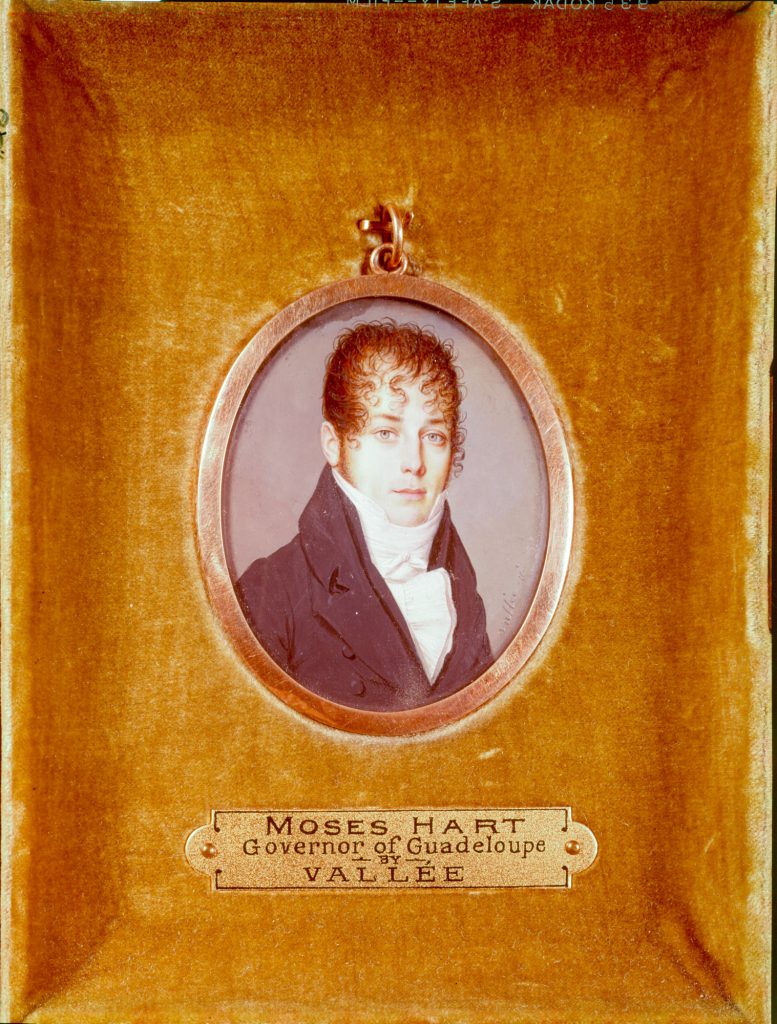Samuel Hart was the second child born to Jacob and Esther Levy Hart,daughter of Grace Mears and MosesRaphael Levy. Raised in Newport, Samuel enjoyed not only thecompanionship of his parents and two siblings, Mosesand Miriam, but that of that of the families of his uncles Naphtali,Samuel, Abraham and Isaac Hart. The Hart family played a prominentrole in Newport’s Jewish community: Naphtali served as parnas ofB’nai Jeshurun in 1759, while Isaac, that same year,joined Jacob Rodrigues de Rivera andMoses Levy as the three trustees whoacquired the plot of land on which to build a synagogue.
Samuel and hisbrother Moses trained as merchants under their uncle Samuel. Thebrothers’ business flourished until the Revolution.
The Hart family,all Loyalists, fled Newport after of the evacuation of the Britisharmy in 1779. In 1780, Samuel, Moses and their father were identifiedalong with a dozen others as traitors to the American cause in an actof banishment by the Rhode Island legislature. The act recorded thatthe Harts had willingly given comfort to the British and that they“had left this State and joined the enemies thereof,” settling onLong Island.
The family driftedin different directions. Many went to the British West Indies, someleft for England, while Samuel, his parents and siblings, all went toNew York City around 1782. Here, his sister Miriam married LieutenantMontague Blackwell and Samuel married Rebecca Byrne. The followingyear, when the British yielded New York, Samuel, his wife and theirinfant daughter, Esther, along with his brother and parents fled toEngland. His parents died there the following year. Moses too wouldremain in England until his death in 1825.
Samuel, however,returned with his family to North America, settling in Halifax by1785. He purchased a store, where he sold dry goods from England andproducts from the West Indies. Business was slow going for some time,and debts landed him in prison more than once. Eventually, however,his business prospered. In 1793 Samuel was elected to the House ofAssembly of Nova Scotia, though to assume his position he had to bebaptized Anglican. He retained the office until 1799. Lore has itthat Samuel, on a trip to England in 1795-96—the very trip whenthis portrait was painted—left his son Moses Montagu with hisbrother, Moses, who had remained an observant Jew, so that his childwould be raised Jewish.
Samuel’s finalyears were troubled ones. During the economic slump of 1805-1807, hisbusiness failed. In 1809 he was declared a lunatic, and his finaldays were spent chained to the floor in an upstairs room in his ownmansion in Preston, Nova Scotia.
